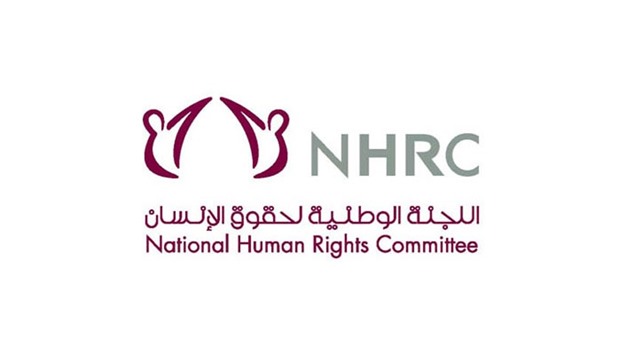The NHRC delegation will visit Germany, Switzerland, Sweden, Netherlands and France.
Speaking during a press conference, Dr al-Marri said the committee will hire an international Swiss law firm in Geneva on Saturday to co-ordinate with a number of Qatari law firms, national courts in Europe and the NHRC to follow up on the cases of Qataris as well as citizens of the three countries who were affected by the siege and the consequent collective punishments and rights violations in line with the principle of force majeure. He added that the law firm will have choices to act and carry out its task.
The NHRC will hold an international conference on July 24-25 in Doha to discuss the management of risks facing freedom of speech, protection of journalists and the right to access information, Dr al-Marri said, adding that a number of partners of the committees will co-operate with it to organise the conference, including the International Federation of Journalists (IFJ).
He said that 200 media and rights organisations will participate in the conference in addition to the United Nations Commission on Human Rights, and UN special rapporteurs including, UN special rapporteur on the promotion and protection of the right to freedom of opinion and expression, and other international human rights arms. The conference will discuss and study suggestions and topics related to protecting journalists and the obstacles they face.
Dr al-Marri said that the conference comes due to the continuous violations of the freedom of speech and assaults on journalists, in addition to calls for shutting down satellite channels.
The NHRC chairman said the claims made by the blockading countries alleging that the siege and its consequences are not aimed at the Qatari people were untrue. He refuted them saying that families, students and businessmen are part of the population, hence all these sanctions are aimed at the Qatari population, residents of Qatar, and some citizens from siege countries.
He added that the escalation threats made by the UAE ambassador to Moscow constitute explicit acknowledgement that such collective sanctions affect the people.
Asked about the GCC secretary general’s silence on the matter, Dr al-Marri said if he is absent from the political scene, he should not be absent from the humanitarian side of the issue.
Dr al-Marri criticised the silence of the Arab League’s Arab Charter on Human Rights, which includes independent experts, and the OIC’s Independent Permanent Human Rights Commission, saying that they did not carry out their duties in this regard.
He urged the siege countries to reverse their measures and also urged an international movement to lift the siege and not to throw citizens into political disputes.
He likened the use of citizens in the dispute to dictatorial practices that besiege civilians and starve them for political gains.
He said that international law principles call for the non-involvement of civilians in political conflicts but added that the siege countries do that, stressing that the State of Qatar will not respond in the same manner to these violations based on the principles of international laws and ethics as well as its customs and traditions.
On his vision about what some concerned entities in siege countries said about exaggerations by the NHRC in talk about the violations of the siege, Dr al-Marri said that there are statements issued by the United Nations High Commissioner for Human Rights and international organisations that visited the committee, including Amnesty International and Human Rights Watch, that all confirmed the violations against Qatari citizens and the rights of resident workers.
So far, he said, the committee has received 2,451 complaints regarding rights and humanitarian violations.
He said that the statements issued by the high commissioner and international human rights organisations act as messages confirming that the violations of the siege countries constitute a crime against the Qatari people and residents of the country.
Dr al-Marri said that the reported easing of siege measures by the three countries is vague and ineffective, and, in principle, is a basic human right rather than a favour.
If it hasn’t been for NHRC’s moves, he said, the violations would have increased in several sides such as the rights to education, health, property ownership, reunification and transport, highlighting the cases of the harsh suffering and inhuman treatment of many mutual families on the Saudi side of Abu Samra border crossing, stressing that the committee will resort to all concerned entities to stop such grave violations.Pages 2, 20
Asian workers stranded in Saudi
Asian migrants working as domestic staff and farmers are stranded in Saudi Arabia — potentially illegally — after their Qatari bosses were ordered out of the kingdom, the head of Qatar’s National Human Rights Committee said yesterday. The workers from Bangladesh, India, Pakistan and Nepal have been left without accommodation and money, said NHRC chairman Dr Ali bin Smaikh al-Marri.
“There are a lot of migrant workers affected by this decision,” he said.
Many of those affected were farmers who drive livestock between the two countries, he said.
“Usually the workers travel with Qataris — many Qataris employ farmers and travel with their domestic workers and drivers,” he told a news conference.
“The workers were not allowed to travel into Qatar and now they are living illegally in Saudi Arabia and do not have basic needs.
“They have no shelter and cannot access money.”



